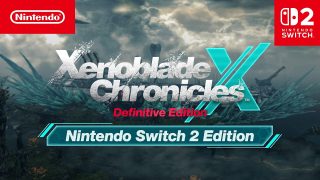It was all because of an eyepatch.
When I was a kid, I only chose boy characters in games. Socialization had (incorrectly) taught me that people should play avatars in games that match the gender they have in real life. In my repressed vision, guys who played girls in Pokémon or other games were weirdos at best and depraved at worst. At the time, I couldn’t admit — or even be cognizant of — my desire to actually do that myself. I had to be a boy, didn’t I? That was what everybody told me.
But I also loved eyepatches. I have no psychological or emotional explanation for that one; I think I just really liked pirates. So when the time for character creation came, I obviously wanted to be a character with an eyepatch. But that was only an option for the female version of Robin, the game avatar. That reason was enough to overcome whatever was internally holding me back from playing as a girl. And so I played through the game not as strictly myself but as Robin, the mild-mannered, slightly snarky tactician — a woman.
I often wonder. Could it have been another game? Would there have been some other excuse that eventually got me clear of whatever preconceived notion of gender norms I had in my head? Undoubtedly. But of all the games it could have been, I’m glad it was this one. Because Fire Emblem Awakening is special in ways beyond my own chronicle of gender feelings — it is a landmark for its series, the 3DS, and all games of its ilk. It turns ten years old today, and I do not have the words to properly celebrate.

Awakening follows the timeless journey of Chrom and his Shepherds as they fight against an invading army before going on to save the world from an evil dark dragon. This is about as Fire Emblem a plot as one can have, and it echoes with ideas and tropes from throughout the series in a sprawling, three-act plot of war, love, and sacrifice. It’s hardly the most novel premise, but where there could be clichés instead stands a classic story of good and evil, tapping into fantasy’s strengths to deliver a sweeping epic that exists on a scale punching far above its supposed weight class.
It would be foolish, however, to suggest that the game’s strengths lie in its plot rather than its all-star class. An expanded range of supports over previous entries expands the amount of characterization each character gets as well as the relationships they hold — and gives a chance for the game’s positively incredible dialogue (localized brilliantly by 8-4) to shine. Even a decade later there are countless conversations fresh in my mind, from Chrom demanding Frederick take down a number of revealing posters around camp, to Virion’s multiple poor attempts at flirtation, to countless more. I’ve heard detractors say the cast is shallow or one-note over the years, but I find such a notion utterly ridiculous — the vast majority of the cast has depth, nuance, and pathos — even when some lean on their character schtick a lot.

Of course, the true standouts are the “second generation” — children of married units who time travel from a ruined future to fight alongside their parents (whom they by and large have testy relationships with). Led by Lucina — one of the most popular and beloved FE Lords to this day — the children’s stories are deeply tragic, but lead to dynamics both funny and heartwarming as they attempt to acclimate to a world not yet lost. Characters like Owain, Cynthia, Inigo, Severa, and more are just as dear to me as the day I met them. Their fight feels realer and more dire as they strive to fight against the hand fate dealt them.
The game also doesn’t merely fret for the future, but hails its own past — Awakening celebrated past FE games in a way the series had never truly done before, bringing in characters from even unlocalized games as Spotpass and paid DLC. Besides offering official names for the likes of Seliph, Leif, and more, it also spread the love between each of it previous ten titles in a thoughtfully egalitarian way, honoring the obscure entries like Thracia 776 just as much as the stone cold classics like Mystery of the Emblem. Even with the release of the much more expansive Fire Emblem Heroes, Awakening arguably does a better job of paying due respects to every game in the series with rough equality. And while some of the DLC art could be… questionable, by and large it offered a chance for players to discover a whole new side to a series that had lived largely in obscurity.

Legacy drives the game — it is at the center of the conflict between Ylisse and Plegia, the obligation Lucina feels to save the world, the destiny written in Robin’s blood. It’s no wonder, given what the devs were (now famously) going through. After declining sales, Nintendo declared this would be the last Fire Emblem game unless things improved. Intelligent Systems then pulled out all the stops to develop it, it became a breakout hit, and now Fire Emblem is not merely living but thriving as one of Nintendo’s premier franchises. It’s a stunning turnaround in only a decade, much of it accomplished by Awakening’s hand.
It is no coincidence, then, that the other driving force of Awakening is “Fate” — an unchanging destiny that each character struggles against. No matter what choices you make in the narrative, the outcome is always the same — your efforts to make things better turn out futile. It’s so transparent in retrospect. The developers were fighting against their fate, just like Chrom and Robin were.
And they weren’t alone.
My life at 16 wasn’t quite so predetermined, but there are certain things that seem immutable. At the time I was directionless, unsure what I wanted to do or who I wanted to be in life. And I fell in love with this game. The colorful characters, dramatic dialogue, and heartrending relationships… it all opened my eyes to the true power stories could have. That writing could have. I remember sitting in my school’s cafeteria and holding back tears as Cynthia told her father that she knew it was her place to go away once the war ended. I spent half of a whole entire vacation to Japan with my face glued to my 3DS screen. Immediately after finishing it I replayed the whole thing. Twice. “Obsession” doesn’t begin to describe it. It was a piece of my soul.

At the end of Awakening, Robin faces down Grima – her other self, the malicious dragon that she’s supposedly destined to become. Chrom is supposed to strike Grima down and send her back to slumber, but Robin defies this by using her power (Grima’s own) to strike the dragon down, supposedly killing herself in the process. Finally the player makes a choice with impact, one with narrative weight and consequence. And by striking Grima down — severing her tie with the dark god once and for all — Robin lives, found in the same position that she started the game in, hoisted off the ground by Chrom, being told, “Welcome back. It’s over now.” Robin defied both her fates — corruption and death — to live another day.
So, too, did the developers. Awakening catapulted to unprecedented critical and commercial success to become one of Nintendo’s flagship franchises. And so did I. Awakening, more than anything else, inspired me to become a writer, a dream I’m still on the path of to this day. Years down the road, I would realize I chose to play as Female Robin for many more reasons than just an eyepatch. And as my gender transition continues, I look back upon Awakening as an important milestone in that journey.
There are countless more things to wax philosophical about — the game’s beautiful soundtrack, Yusuke Kozaki’s wonderful character designs, rebuking of much of the nitpicking criticism that has befallen the game in the decade after release — but little matters beyond the bottom line: Awakening succeeded. It defied the fate given to it and carved a way to a brighter tomorrow. And in the process it inspired us to do the same, giving us one of the greatest in the series, one of the greatest on 3DS, and one of my personal favorites of all-time.
Anything can change. I know I did.
Leave a Comment


